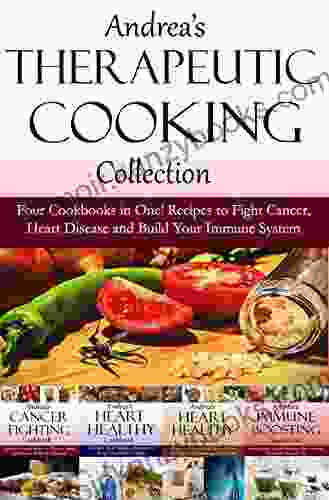101 Ways to Lower Your Cholesterol: A Comprehensive Guide to Heart Health

Cholesterol is a waxy substance that is found in all cells of the body. It is essential for many bodily functions, such as hormone production and the formation of cell membranes. However, high levels of cholesterol can lead to the buildup of plaque in the arteries, which can increase the risk of heart disease and stroke.
The good news is that there are many things you can do to lower your cholesterol levels. These include:
- Eating a healthy diet. A diet that is rich in fruits, vegetables, and whole grains can help to lower cholesterol levels. These foods are high in fiber, which helps to reduce the absorption of cholesterol into the bloodstream.
- Exercising regularly. Exercise helps to raise levels of HDL cholesterol, the "good" cholesterol that helps to remove plaque from the arteries.
- Losing weight. If you are overweight or obese, losing even a small amount of weight can help to lower your cholesterol levels.
- Quitting smoking. Smoking damages the arteries and increases the risk of heart disease. Quitting smoking can help to reduce your cholesterol levels and improve your overall health.
- Managing stress. Stress can lead to high blood pressure and other health problems that can increase the risk of heart disease. Managing stress can help to lower your cholesterol levels and improve your overall health.
In addition to these lifestyle changes, there are also a number of medications that can be used to lower cholesterol levels. These medications include:
- Statins. Statins are the most commonly prescribed type of cholesterol-lowering medication. They work by blocking the production of cholesterol in the liver.
- Bile acid resins. Bile acid resins work by binding to bile acids in the intestine and preventing them from being reabsorbed into the bloodstream. This can help to lower cholesterol levels.
- Ezetimibe. Ezetimibe works by blocking the absorption of cholesterol into the bloodstream from the small intestine.
- PCSK9 inhibitors. PCSK9 inhibitors are a newer type of cholesterol-lowering medication that works by blocking the activity of a protein that helps to regulate cholesterol levels.
If you are concerned about your cholesterol levels, talk to your doctor. They can recommend the best course of treatment for you.
101 Ways to Lower Your Cholesterol
Here is a list of 101 ways to lower your cholesterol levels naturally:
1. Eat oatmeal for breakfast. Oatmeal is a soluble fiber that can help to lower cholesterol levels. 2. Add beans to your salads, soups, and stews. Beans are a good source of soluble fiber. 3. Snack on fruits and vegetables. Fruits and vegetables are low in calories and fat, and they are a good source of fiber. 4. Choose lean protein sources. Lean protein sources, such as chicken, fish, and tofu, are low in saturated fat. 5. Limit your intake of red meat. Red meat is high in saturated fat. 6. Avoid processed foods. Processed foods are often high in saturated fat and trans fat. 7. Cook more meals at home. Cooking at home gives you more control over the ingredients in your food. 8. Read food labels carefully. Pay attention to the serving size and the amount of saturated fat and trans fat in the food. 9. Choose low-fat dairy products. Low-fat dairy products are a good source of calcium and vitamin D. 10. Limit your intake of sugary drinks. Sugary drinks are high in calories and can contribute to weight gain. 11. Exercise regularly. Exercise helps to raise levels of HDL cholesterol, the "good" cholesterol that helps to remove plaque from the arteries. 12. Lose weight if you are overweight or obese. Losing even a small amount of weight can help to lower your cholesterol levels. 13. Quit smoking. Smoking damages the arteries and increases the risk of heart disease. Quitting smoking can help to reduce your cholesterol levels and improve your overall health. 14. Manage stress. Stress can lead to high blood pressure and other health problems that can increase the risk of heart disease. Managing stress can help to lower your cholesterol levels and improve your overall health. 15. Get enough sleep. Getting enough sleep is important for overall health and well-being. 16. Take a fish oil supplement. Fish oil supplements contain omega-3 fatty acids, which have been shown to lower cholesterol levels. 17. Take a plant sterol supplement. Plant sterols are compounds that are found in plants that can help to lower cholesterol levels. 18. Take a garlic supplement. Garlic has been shown to lower cholesterol levels. 19. Take a green tea extract supplement. Green tea extract has been shown to lower cholesterol levels. 20. Take a turmeric supplement. Turmeric has been shown to lower cholesterol levels. 21. Take a berberine supplement. Berberine is a compound that has been shown to lower cholesterol levels. 22. Take a guggul supplement. Guggul is a herb that has been shown to lower cholesterol levels. 23. Take a niacin supplement. Niacin is a B vitamin that has been shown to lower cholesterol levels. 24. Take a red yeast rice supplement. Red yeast rice is a type of fermented rice that has been shown to lower cholesterol levels. 25. Drink red wine in moderation. Red wine contains antioxidants that can help to protect the heart. 26. Eat dark chocolate in moderation. Dark chocolate contains antioxidants that can help to protect the heart. 27. Get a massage. Massage can help to reduce stress and improve circulation. 28. Spend time in nature. Spending time in nature can help to reduce stress and improve overall health. 29. Meditate. Meditation can help to reduce stress and improve overall health. 30. Practice yoga. Yoga can help to reduce stress and improve overall health. 31. Tai chi. Tai chi is a mind-body exercise that can help to reduce stress and improve overall health. 32. Qigong. Qigong is a mind-body exercise that can help to reduce stress and improve overall health. 33. Play with your pets. Playing with your pets can help to reduce stress and improve overall health. 34. Volunteer your time. Volunteering your time can help to reduce stress and improve overall health. 35. Learn to play a musical instrument. Learning to play a musical instrument can help to reduce stress and improve overall health. 36. Spend time with loved ones. Spending time with loved ones can help to reduce stress and improve overall health. 37. Laugh more. Laughing can help to reduce stress and improve overall health. 38. Get enough sunlight. Getting enough sunlight can help to improve mood and overall health. 39. Take care of your mental health. Taking care of your mental health is important for overall health and well-being. 40. Get regular checkups. Getting regular checkups can help to identify and treat health problems early. 41. Talk to your doctor about your cholesterol levels. Your doctor can recommend the best course of treatment for you. 42. Make gradual changes to your diet and lifestyle. Making gradual changes is more sustainable than making drastic changes. 43. Don't be afraid to ask for help. If you need help lowering your cholesterol levels, don't be afraid to ask for help from your doctor, a registered dietitian, or a support group. 44. Be patient. Lowering your cholesterol levels takes time and effort. Don't get discouraged if you don't see results immediately. 45. Reward yourself for your progress. Rewarding yourself for your progress can help you to stay motivated. 46. Don't give up. Lowering your cholesterol levels is a lifelong commitment. Don't give up if you have a setback. Just keep at it and you will eventually reach your goals. 47. Eat plenty of soluble fiber. Soluble fiber is found in oats, beans, lentils, apples, pears, and citrus fruits. It helps to lower cholesterol levels by binding to cholesterol in the digestive tract and preventing it from being absorbed into the bloodstream. 48. Reduce your intake of saturated and trans fats. Saturated and trans fats are found in animal products, processed foods, and fried foods. They can raise cholesterol levels when consumed in excess. 49. Eat more unsaturated fats. Unsaturated fats are found in olive oil, avocados, nuts, seeds, and fatty fish. They can help to lower cholesterol levels when consumed in moderation. 50. Get regular exercise. Exercise helps to raise levels of HDL cholesterol, the "good" cholesterol that helps to remove plaque from the arteries. Aim
Do you want to contribute by writing guest posts on this blog?
Please contact us and send us a resume of previous articles that you have written.
 Book
Book Novel
Novel Page
Page Chapter
Chapter Text
Text Story
Story Genre
Genre Reader
Reader Library
Library Paperback
Paperback E-book
E-book Magazine
Magazine Newspaper
Newspaper Paragraph
Paragraph Sentence
Sentence Bookmark
Bookmark Shelf
Shelf Glossary
Glossary Bibliography
Bibliography Foreword
Foreword Preface
Preface Synopsis
Synopsis Annotation
Annotation Footnote
Footnote Manuscript
Manuscript Scroll
Scroll Codex
Codex Tome
Tome Bestseller
Bestseller Classics
Classics Library card
Library card Narrative
Narrative Biography
Biography Autobiography
Autobiography Memoir
Memoir Reference
Reference Encyclopedia
Encyclopedia Green Wood
Green Wood Dan Shapiro
Dan Shapiro Amiri Hooker
Amiri Hooker Ammie Elliott
Ammie Elliott Neil Degrasse Tyson
Neil Degrasse Tyson Mario Botsch
Mario Botsch Annalise G Roberts
Annalise G Roberts B True
B True Karl Barth
Karl Barth Lydia Merrill
Lydia Merrill Dr Andrew Strauss
Dr Andrew Strauss Christine Watkins
Christine Watkins James Garrison
James Garrison John Everett Heath
John Everett Heath Betsy Bird
Betsy Bird Randy Clemens
Randy Clemens Evie Bentley
Evie Bentley Andrea Celik
Andrea Celik Linda Frank
Linda Frank Lea Valle
Lea Valle
Light bulbAdvertise smarter! Our strategic ad space ensures maximum exposure. Reserve your spot today!

 Nathaniel HawthorneThe Dash Diet Cookbook: Your Complete Guide to Lowering Blood Pressure and...
Nathaniel HawthorneThe Dash Diet Cookbook: Your Complete Guide to Lowering Blood Pressure and...
 Johnny TurnerInsanely Delicious Savory and Sweet Pancake Recipes: An Easy Baking Cookbook...
Johnny TurnerInsanely Delicious Savory and Sweet Pancake Recipes: An Easy Baking Cookbook... E.E. CummingsFollow ·7k
E.E. CummingsFollow ·7k Tony CarterFollow ·2.1k
Tony CarterFollow ·2.1k Ismael HayesFollow ·18.8k
Ismael HayesFollow ·18.8k Cody RussellFollow ·2.4k
Cody RussellFollow ·2.4k Miguel de CervantesFollow ·7.4k
Miguel de CervantesFollow ·7.4k Israel BellFollow ·12k
Israel BellFollow ·12k Braden WardFollow ·2.5k
Braden WardFollow ·2.5k Cristian CoxFollow ·16.3k
Cristian CoxFollow ·16.3k

 Miguel Nelson
Miguel NelsonFour Cookbooks In One: Recipes To Fight Cancer, Heart...
Looking for a healthy way...

 Marcus Bell
Marcus BellHearts and Souls: Exploring the Lives and Legacies of...
The Special Olympics movement has been a...

 Tony Carter
Tony CarterDiagnosed With Breast Cancer: Navigating Life After the...
A breast cancer diagnosis can be a...

 Joe Simmons
Joe SimmonsLiddypool: The Stories and Interviews – A Literary...
In the realm of...

 Jett Powell
Jett PowellBreakfast for Boneheads: 66 Breakfast Recipes for Lazy...
Are you tired of eating the...










